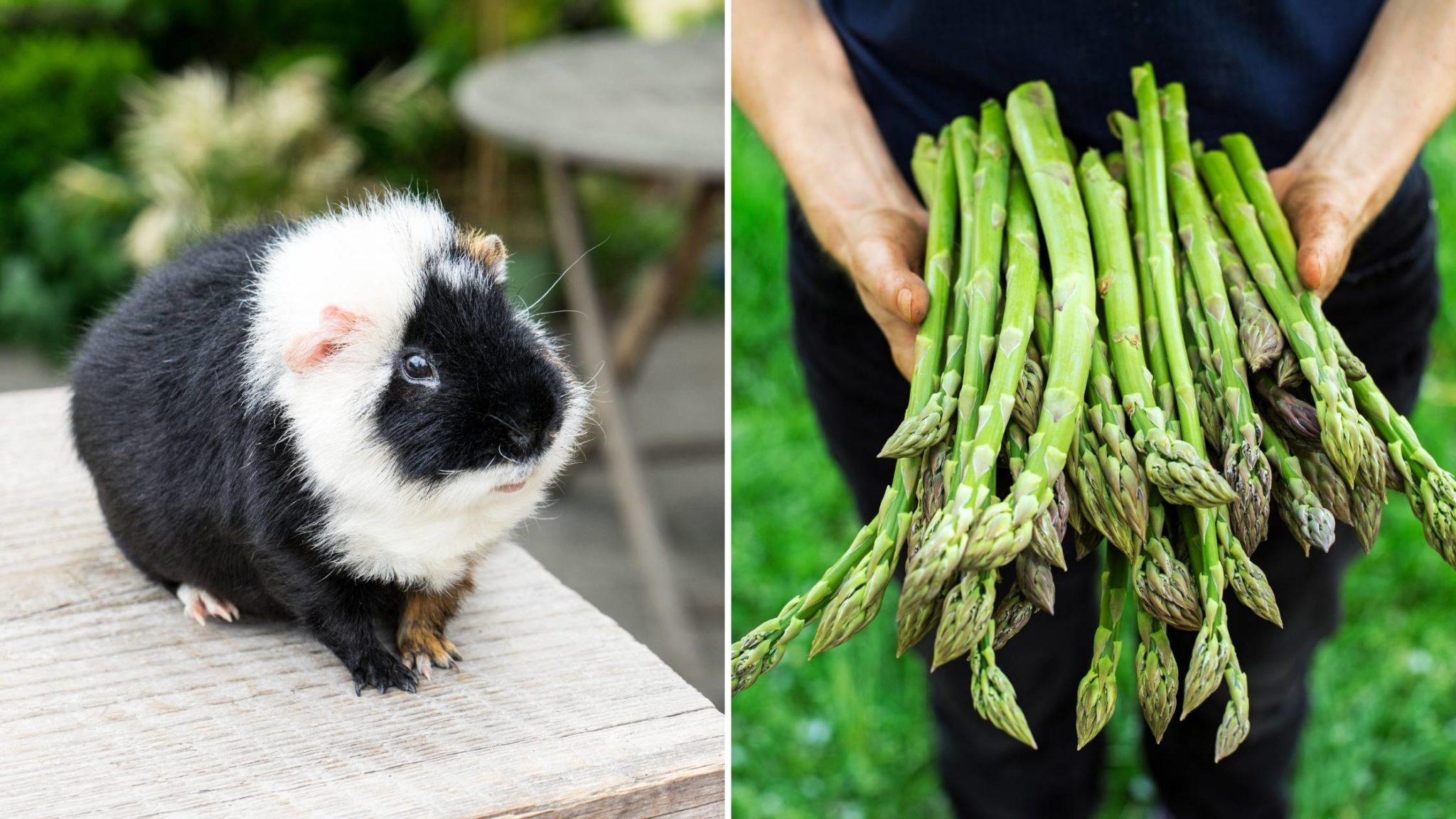
Can Guinea Pigs Eat Asparagus Benefits, Hazards, and More
Excessive consumption of asparagus can lead to substantial problems in your guinea pig's diet. In the realm of guinea pig care, ensuring their health and happiness is a top priority. The pursuit of suitable, nourishing foods often leads us to an array of choices, ranging from the commonplace to the unfamiliar.
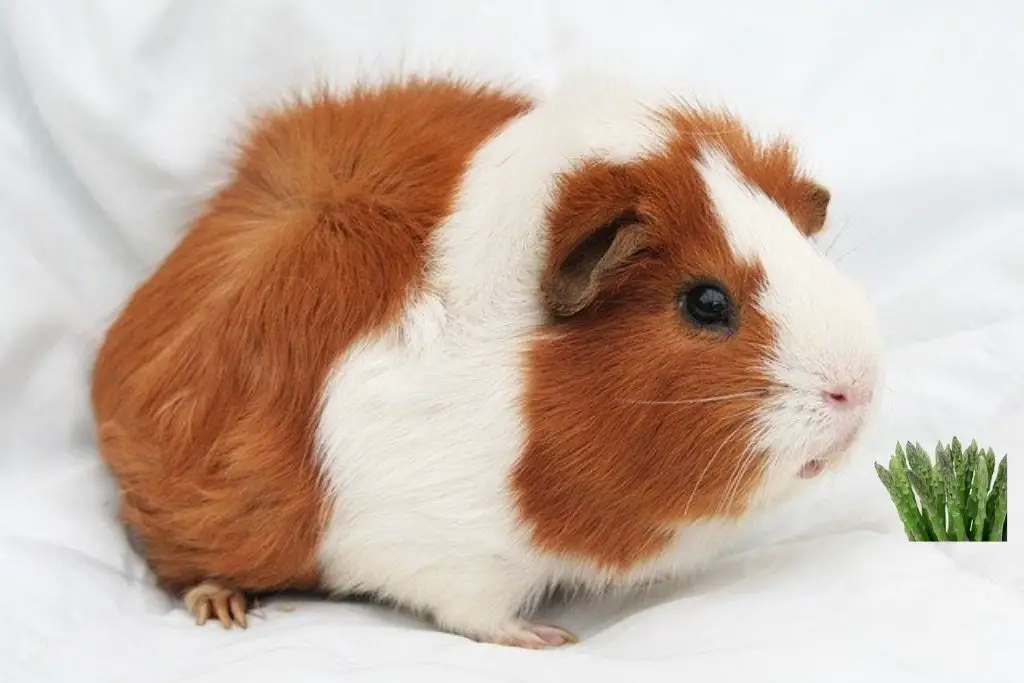
Can Guinea Pigs Eat Asparagus? What You Need To Know
Guinea pigs can safely eat asparagus frequently, but we wouldn't recommend any veggies but leafy greens be offered every day. A good serving size is a ¼ cup. In conclusion, yes, guinea pigs can eat asparagus. They are enriched with essential nutrients. It is a healthy vegetable for them to consume and it provides a number of nutritional.
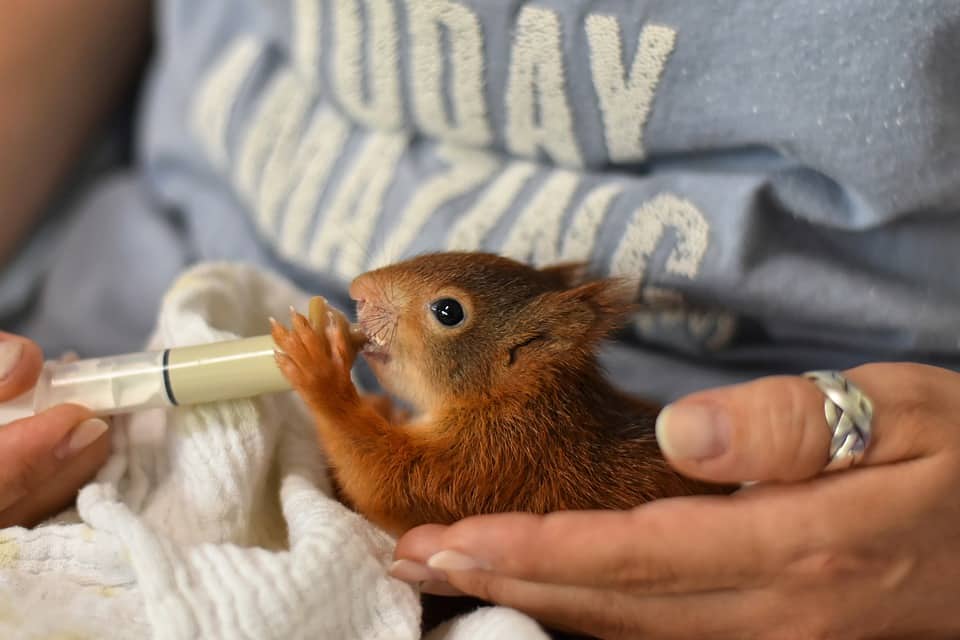
Can Guinea Pigs Eat Asparagus? Awesome Facts To Know! PetCosset
Wondering if can eat asparagus? Learn about its , , and potential . Find out how to safely prepare and introduce asparagus to your furry friend and explore other safe vegetables for guinea pigs. Nutritional Value of Asparagus. Asparagus is not only a delicious vegetable but also a powerhouse of essential nutrients that can greatly benefit.

Can Guinea Pigs Eat Asparagus Stalks?
Can Guinea Pigs Eat Asparagus Ends? Guinea pigs can eat raw asparagus, which has important vitamins and minerals. The tough ends of asparagus, usually not eaten by people, can be fun chew toys for guinea pigs. Every guinea pig may have different taste preferences, so watch how they react to know what they like.
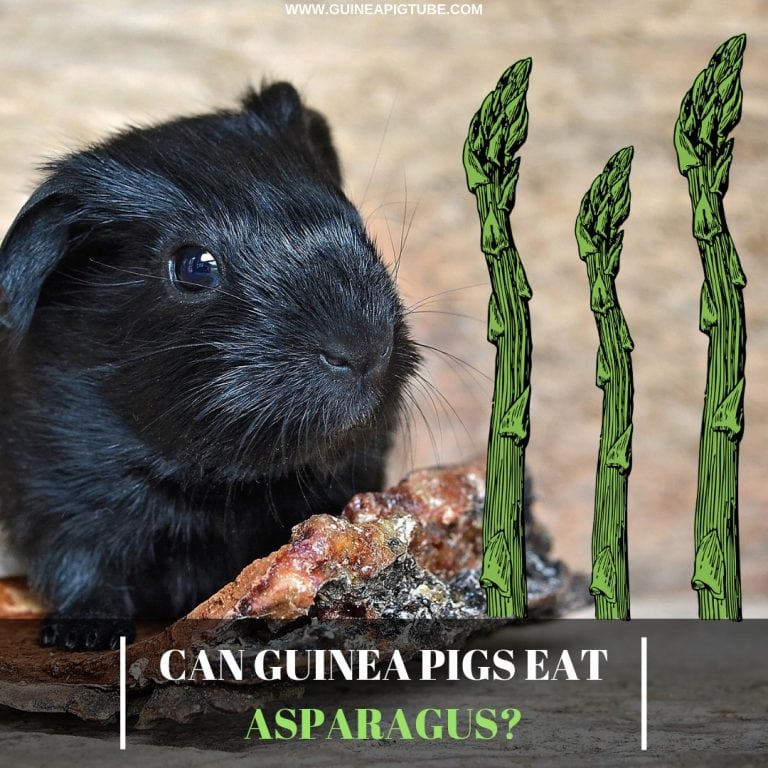
Can Guinea Pigs Eat Asparagus? Guinea Pig Tube
The simple answer as to whether your pet guinea pigs can eat asparagus stalks or stems is yes. Yes, asparagus stalks or stems (please read here can Guinea pigs eat kale stem) are, without a doubt, harmless and safe when ingested by your little pets. On the contrary, your pet guinea pigs will most definitely enjoy eating the asparagus stalks.
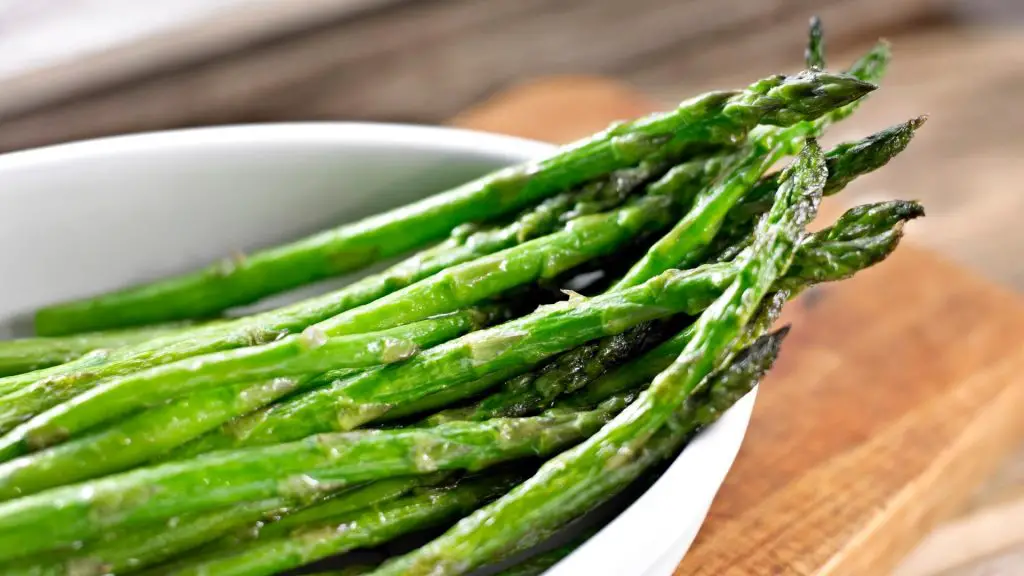
Can Guinea Pigs Eat Asparagus? (Benefits, Risks, Serving Size & More
Considerations With Guinea Pigs Eating Asparagus. Like many vegetables, monitoring the first couple of times you feed your guinea pigs asparagus is crucial. Some guinea pigs can get gas or bloating, which is uncomfortable for them and may lead to other complications. Another consideration is the oxalate levels. Unfortunately, asparagus is on.
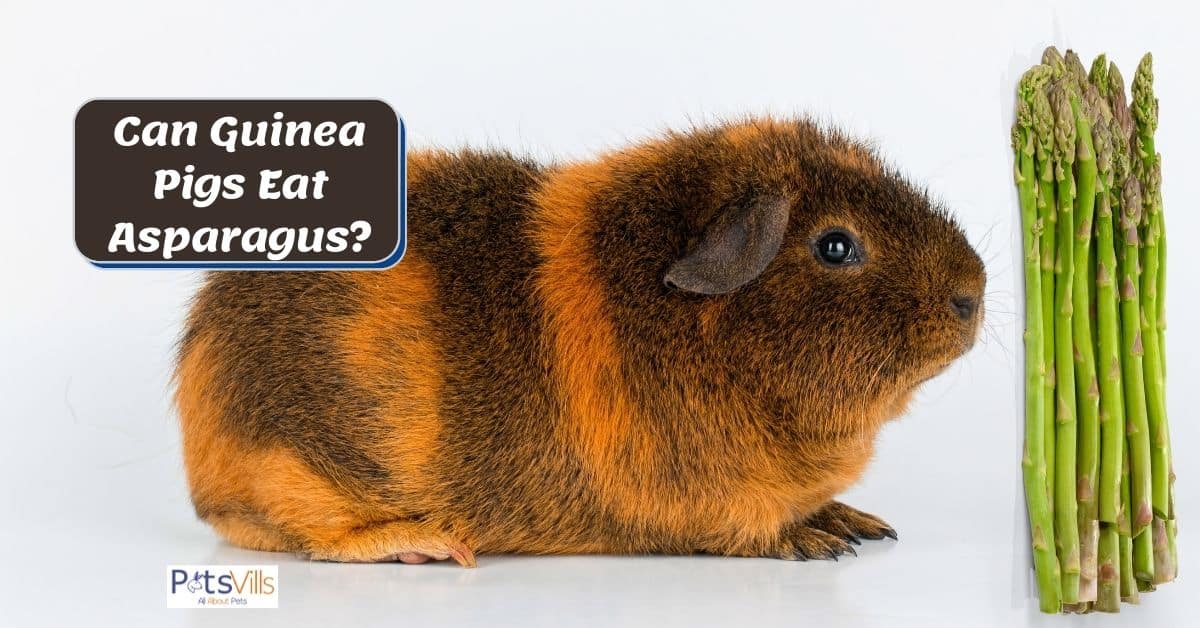
Can Guinea Pigs Eat Asparagus? (Benefits, Risks, and More)
Oxalic Acid: Asparagus contains oxalic acid, which can be harmful to guinea pigs if consumed in excess. Experts recommend no more than 50mg a day. Vitamin C & Other Essential Vitamins: Asparagus contains vitamin C, as well as vitamins A, B5, and K, which are crucial for a guinea pig's health. However, asparagus alone does not contain enough.

Can Guinea Pigs Eat Asparagus? Find Out Here
Other Vegetables Guinea Pigs Can Eat. Nourish your guinea pig with a variety of vegetables to keep them healthy and happy! There are many different types of vegetables that guinea pigs can eat; some of the most popular include carrots, spinach, bell peppers, cucumbers, and parsley. Other vegetables that guinea pigs can enjoy in small quantities.

Can Guinea Pigs Eat Asparagus? 17 Things To Know MRP
Yes, guinea pigs can eat asparagus. When added in moderation, this vegetable possesses numerous health benefits for our guinea pigs. However, it does contain a fair amount of calcium that can lead to some health issues if fed regularly. You should never make a sudden change in your guine pig's diet to introduce an exotic vegetable like asparagus.
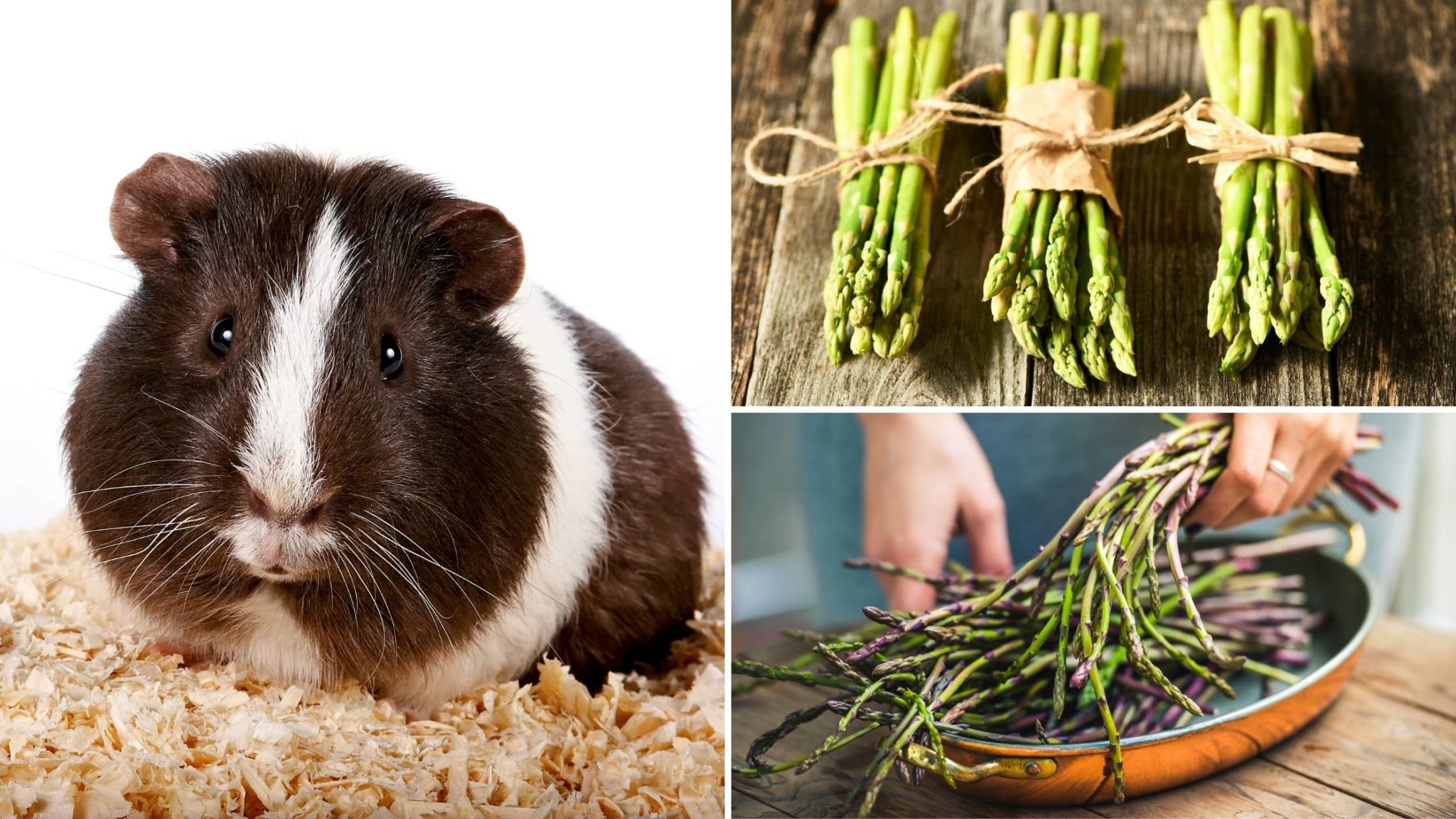
Can Guinea Pigs Eat Asparagus Benefits, Hazards, and More
Guinea pigs can eat asparagus. It's not toxic to your furry buddy and can be a healthy addition to their diet when given in small amounts. A word of caution: Feeding too much asparagus to your guinea pig can increase their risk of bladder stones. Very small portions once or twice a week are ideal. For further considerations on the health.
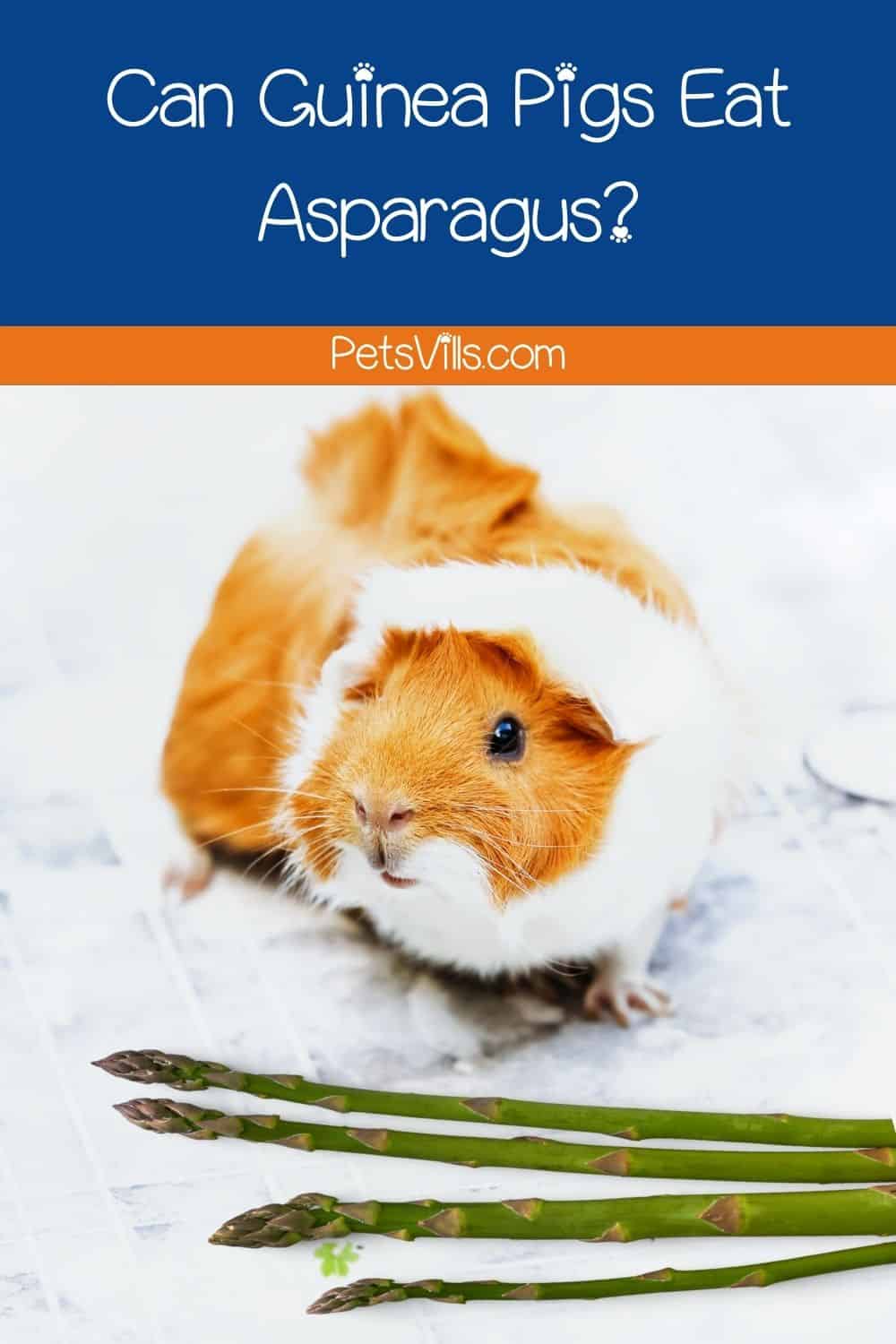
Can Guinea Pigs Eat Asparagus? (Benefits, Risks, and More)
Baby guinea pigs over 4 weeks of age can eat asparagus in very small amounts. However, asparagus can cause gas and bloat in guinea pigs, so it's imperative to introduce it slowly, especially to young guinea pigs that are not yet fully developed. Additionally, asparagus is not overly high in Vitamin C or calcium that baby guinea pigs need, so.
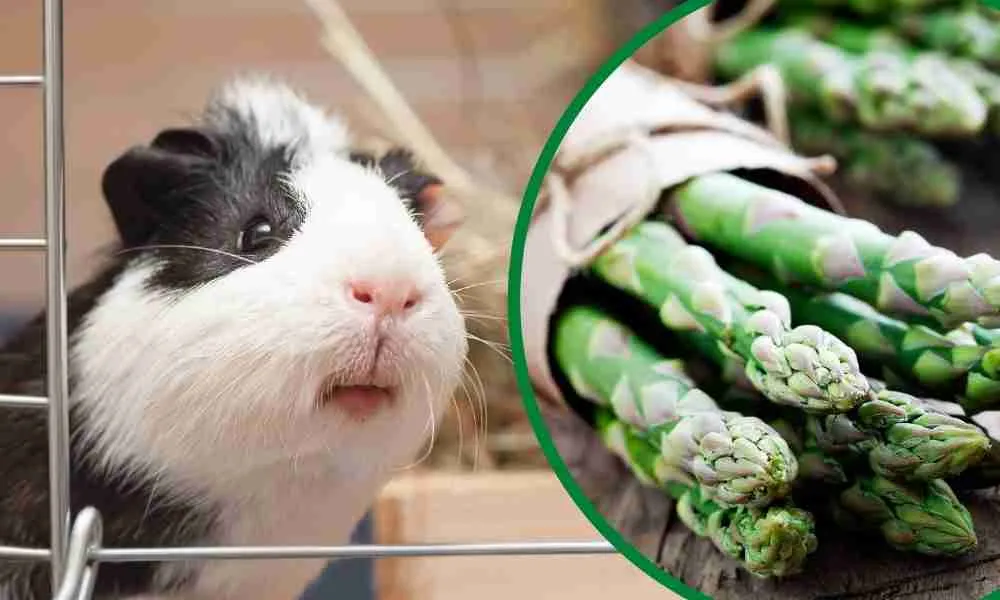
Can Guinea Pigs Eat Raw Asparagus? (10 Benefits Revealed!)
Yes, guinea pigs can eat asparagus. Asparagus can be a great weekend treat for guinea pigs because it contains a lot of nutrients and water. However, guinea pigs can only have raw white or green asparagus. Therefore, it will not replace the guinea pig's daily vegetables.
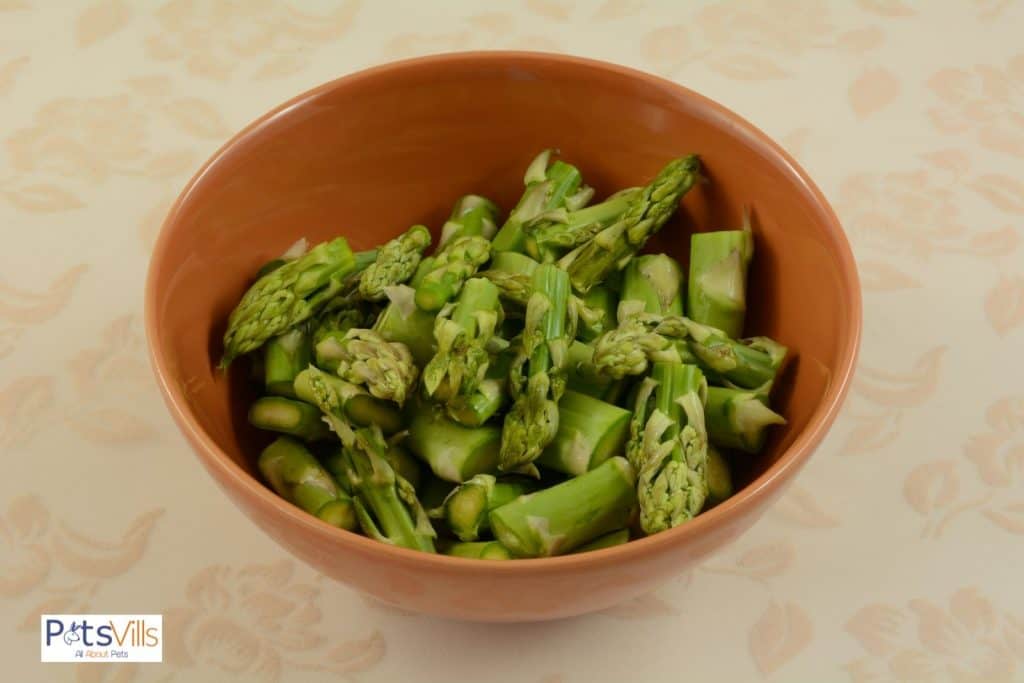
Can Guinea Pigs Eat Asparagus? (Benefits, Risks, and More)
A healthy amount of vitamin a and c is also a bonus. As you can see it does contain some phosphorus and oxelate, a hint of calcium, fat and sugar. But it is high in nutrients and has reasonable levels of vitamin a and c, so guinea pigs can eat asparagus, but refrain from feeding daily. These include the asparagus stalks and tips.
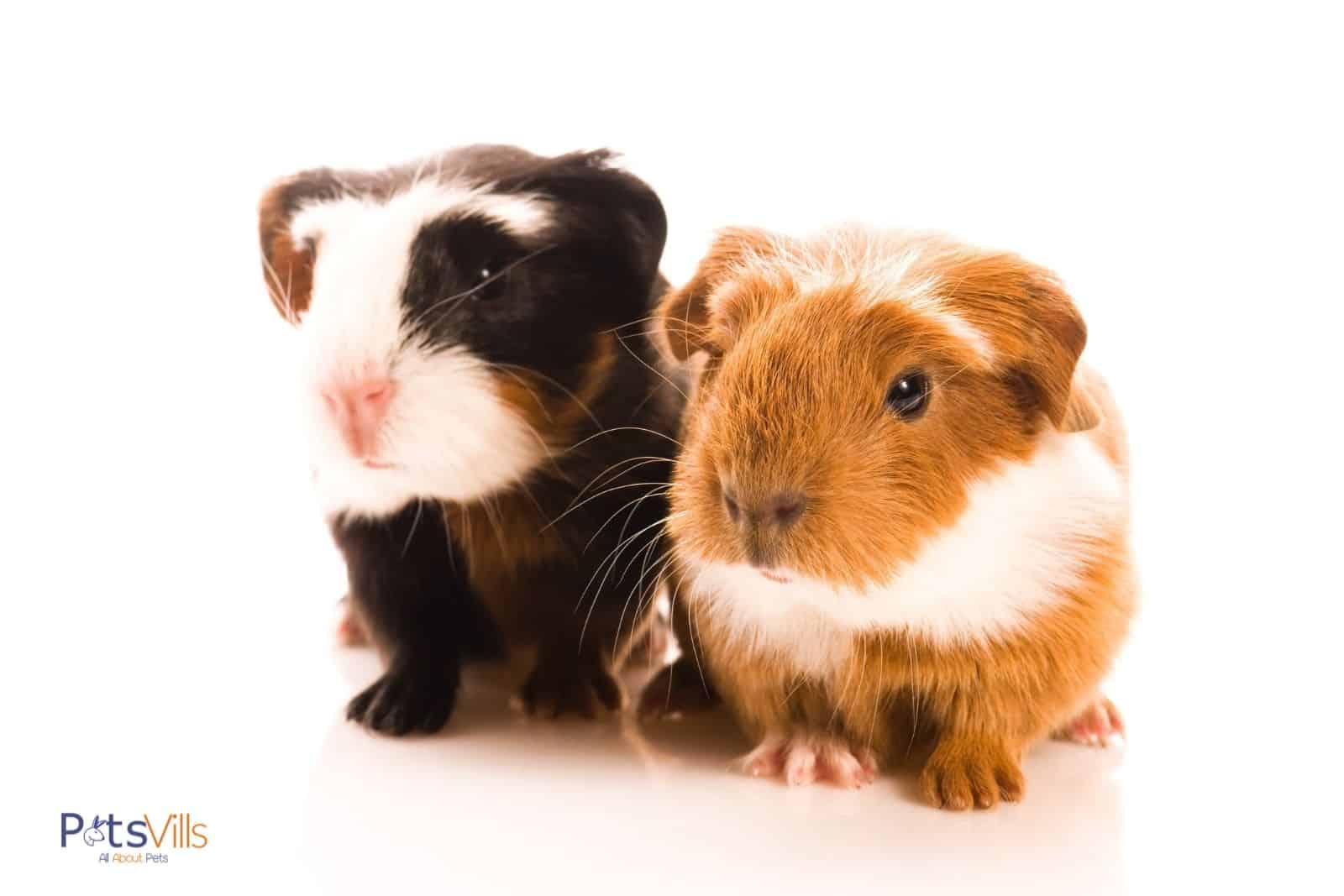
Can Guinea Pigs Eat Asparagus? (Benefits, Risks, and More)
A 100 gram serving of asparagus contains approximately three times the daily calcium requirement of guinea pigs, so it is important to feed it only as an occasional treat, in small amounts. Too much calcium can lead to an increased risk of developing urinary stones, which can be dangerous, or even fatal to guinea pigs. 2.

Can Guinea Pigs Eat Asparagus? 5 Benefits Full Guide iAdoreAnimals
Yes, your guinea pig can eat asparagus stems. The stems of the asparagus plant are completely safe for consumption. Guinea pigs usually enjoy eating the stems because they love chewing, which is also good for their teeth. You should also watch out for the serving size and serve asparagus stems in moderate amounts.
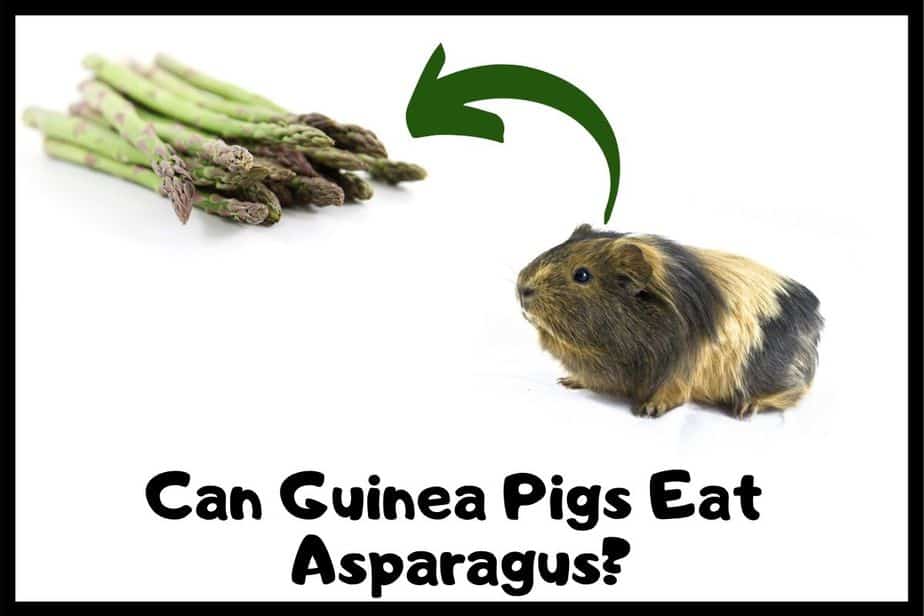
Can Guinea Pigs Eat Asparagus? (Hazards, Serving Size & More)
Serve only fresh, raw asparagus to your pet guinea pig. Begin by washing the asparagus thoroughly as you'll need to remove any bacteria, pesticides, or other chemicals that may have been placed on the asparagus. Then, you'll want to cut off and discard the thick stem. Cut the asparagus into small bite-sized pieces.